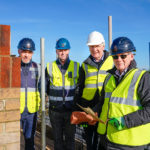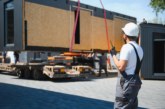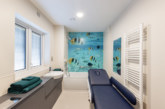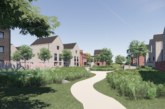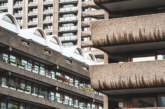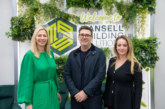Celebrating its seventh anniversary, Cambridge Investment Partnership (CIP), the equal partnership between Cambridge City Council and The Hill Group, has completed or is actively constructing over 1,150 new council and private sales homes. As the partnership continues to deliver more affordable homes across the city, CIP marked this milestone with a topping out ceremony of the third phase at Colville Road.
At Colville Road Phase 3, CIP is delivering 48 new council-rented homes and four new commercial units. Designed by BPTW following consultation with the local community, it features a variety of one and two-bedroom council-rented apartments and three-bedroom council-rented homes.
Cllr Gerri Bird, Executive Councillor for Housing and Homelessness at Cambridge City Council and CIP board member said: “I am really proud of what we have achieved as a partnership over the past seven years, delivering brand new council homes across the city and creating healthy and sustainable communities for all.
“With the cost-of-living crisis continuing and housing affordability remaining an issue in the city, we are committed to continuing to drive forward the provision of a wide range of new homes that reflects local housing needs and also support sustainable growth.”
Tom Hill, Managing Director at The Hill Group commented: “The success of our partnership has been achieved through a shared passion and collaborative approach to creating new homes that are secure, sustainable, and fit for the future.
“Colville Road Phase 3 exemplifies our commitment to addressing the housing shortage across Cambridge, as we have replaced 18 poor-quality council homes that were no longer fit for purpose with high-quality, low-carbon new homes for local residents.
“As part of the development, we are also providing four new commercial units and have worked closely with the existing occupiers to provide them with temporary accommodation while construction of the new premises takes place.”
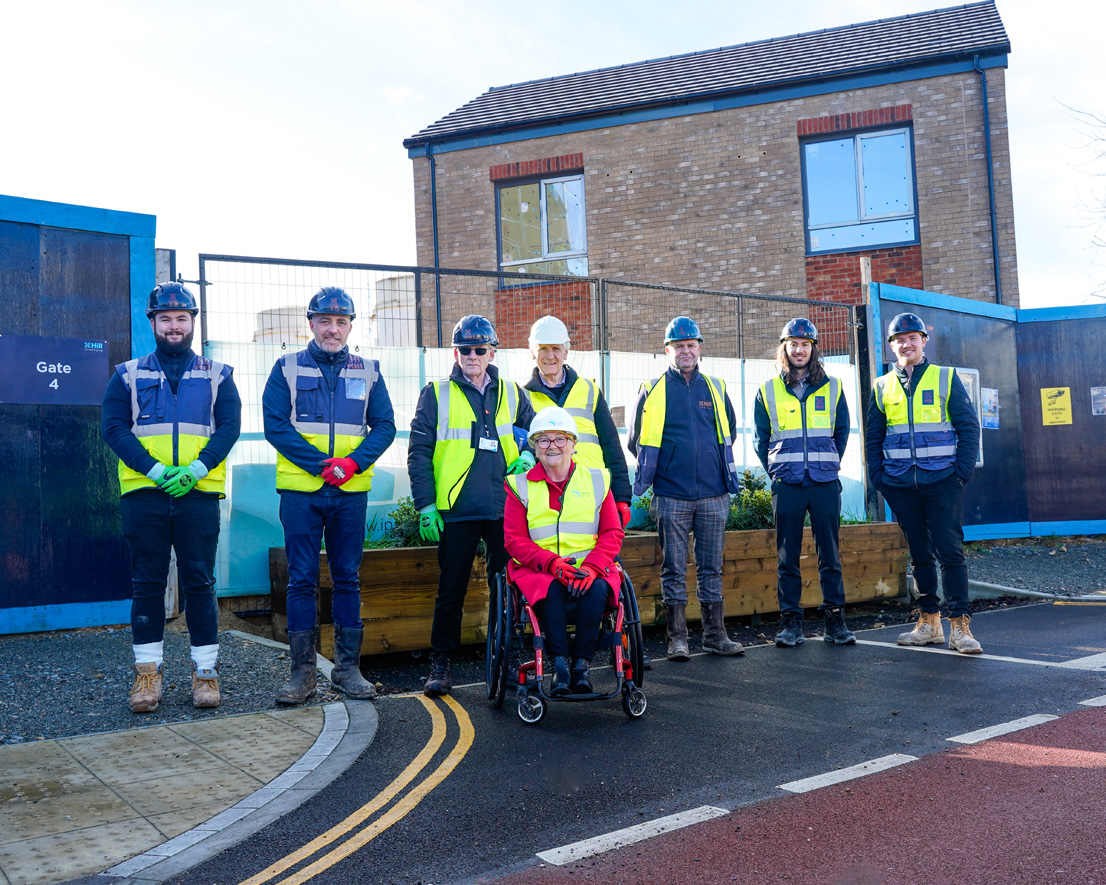 The new homes are being built to high sustainability standards, eliminating gas usage entirely and meeting national guidelines for space. The homes have been designed to a ‘fabric first’ approach with increased insulation and airtightness to keep them as energy-efficient as possible, with heating provided through electrical Air Source Heat Pumps instead of gas, providing low carbon heating.
The new homes are being built to high sustainability standards, eliminating gas usage entirely and meeting national guidelines for space. The homes have been designed to a ‘fabric first’ approach with increased insulation and airtightness to keep them as energy-efficient as possible, with heating provided through electrical Air Source Heat Pumps instead of gas, providing low carbon heating.
Mechanically ventilated heat recovery systems in each property also ensure a healthy flow of air throughout the home, and photovoltaic panels will generate further electricity for the development.
Additional sustainable features include green roofs, which will be installed on the flat roofs to increase thermal mass, support the ecosystem, and enhance biodiversity on the site alongside the landscaping. A sustainable drainage system will aid the existing surface sewer system and allow a more even distribution of drainage.
The existing green space, which is fundamental for the health and wellbeing of local residents and the character of the High Street, is being retained and improved as part of the development. Rain gardens will also be created along the High Street to reflect those already on the other side of the road. Other features include attractive grasses, perennials, and shrubs, which will be used at the frontage of the southern space to provide bio-diverse planting within the car parks to break up the hard standing and soften the landscape.
High levels of cycle storage will be included, along with electrical vehicle charging points, to encourage more sustainable modes of transport.


